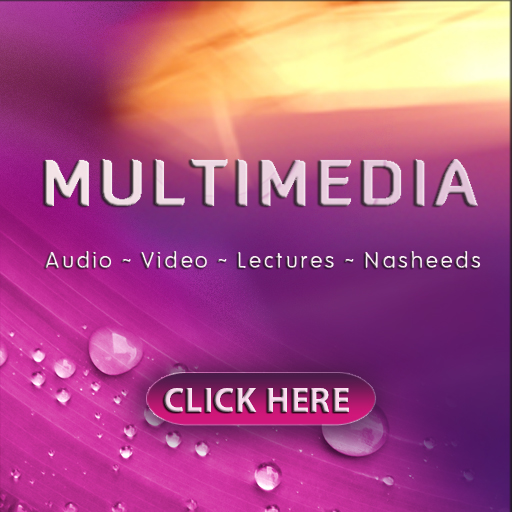
Question:
As a practicing doctor I kindly ask you, if there are any religious reasons speaking against the operative extraction and freezing of ones own un-fertilized egg cells to maintain fertility. These could be used for later preimplantation after being fertilized with the sperm of ones own husband at a later time in life. And does the reason for the extraction and freezing of egg cells make a difference? 3 scenarios come to mind
- The woman, in her thirties considering her age and still un-married wants to save her fertility for her future husband.
- The woman who could have children now wants to delay conception and have children later for personal reasons like studying, pursuing her career etc
- The woman who for medical reasons (Cancer) cannot have children at this moment but wants to after remission.
Can you please provide me with the Islamic fatwa concerning the above cases with proves.
Answer:
In the Name of Allah, the Most Gracious, the Most Merciful.
As-salāmu ‘alaykum wa-rahmatullāhi wa-barakātuh.
Before we can address the issue of freezing egg cells, we need to look at the ruling on artificial insemination.
There is a difference of opinion among the jurists (fuqaha) on the issue of artificial insemination between husband and wife.
Those that have declared it impermissible have done so based on the following [i]:
- This method goes against the natural ways of conceiving.
- This method goes against the hadith: “Modesty is a branch of faith.”
- There is no real need that would relax the prohibition of exposing one’s nakedness (awrah), the sperm of the husband being derived from masturbation, etc.
At the same time, other latter day scholars have declared such a procedure to be permissible under stringent conditions based on the following [ii] [iii]:
- The need to have children sometimes reaches a state of need (dharurah) that would relax the prohibition since couples who cannot conceive can fall into a state of severe depression and anxiety.
- That masturbation in this case is not intended to waste the sperm but is for the sake of conceiving a child (again falling under a need that would relax the prohibition). The sperm can thus be collected by coitus interruptus (azl) which is permissible according to ahnaf or the wife masturbating her husband.
- The fuqaha have given permission for treatment that would lead to exposing the nakedness (awrah) in instances where the treatment is recommended (sunnah) such as circumcision of an adult male or even in cases where a woman wants to make herself plump for her husband.
- The argument that artificial insemination goes against the natural way of conceiving is answered by the fact that such a procedure is akin to a person taking medicine by injection. The natural way is by mouth, but the permission of taking an injection is given. Likewise, at the time of delivery when there is a need a c-section is performed even though that is not the natural way of birthing.
This procedure then will be permissible according to the above subject to the conditions that only the sperm of the husband and the eggs of the wife are involved (i.e. no 3rd party), the sperm should be obtained by the wife from her husband by coitus interruptus or massaging instead of the husband masturbating himself, the husband is treated by a male doctor and the wife by a female doctor.
Now that we’ve addressed the reasons for and against artificial insemination, we can see that the scholars that have approved it have done so based on a real, present need: the husband and wife not being able to conceive since the principle of jurisprudence is that “necessity relaxes the prohibition”.
However, the second principle that goes hand-in-hand with the above is that the “the necessity is only relaxed to the extent of the need.” So, if there is a genuine need the prohibition will only be relaxed to cover that need. As a result assumptions and probabilities will not fall into the ambit of that relaxation. [iv]
In the case of the three scenarios you have mentioned, the only real need is in the scenario where a woman has cancer and is unable to have children and its a very likely possibility that the therapy or treatment she will take will destroy her reproductive functions. As a result she wants to save her egg cells so that she can conceive after remission. In this case, the leeway exists for her to freeze her egg cells subject to the condition that she is treated by a female doctor and the lab where the egg cells will be frozen are known for their superb track record. The latter condition is due to the fact that the possibility of mix up is real and depends largely on the quality control of the lab. There have been instances of such mix ups in the Netherlands, Northern Ireland, England, USA. [v] [vi]
The other scenarios of delaying having children, or not being currently married are not real present needs. As a result it will not be permissible to go through that procedure for these reasons.
In conclusion, if out of precaution a woman in real need avoids this procedure it will be better since there is a difference of opinion as to whether these methods are permissible or not. If she feels that she will not be able to bear the possibility of being childless then based on the ruling that necessity relaxes prohibition it will be permissible. This, as long as her need is genuine and real as defined above.
And Allah Ta’āla Knows Best
Checked and Approved by,
Mufti Ebrahim Desai.
فتاوى محمودية، ١٨/ ٣٢٢ – ٣٢٤ جامعة فاروقية [i]
جديد فقهي مسائل، ٥/ ٩٨ – ١٠٦ [ii]
ثانياً : الطريقان السادسة والسابعة لا حرج من اللجوء إليهما عند الحاجة مع التأكيد على ضرورة أخذ كل [iii]
الاحتياطات اللازمة وهما
السادسة : أن تؤخذ نطفة من زوج وبييضة من زوجته ويتم التلقيح خارجياً ثم تزرع اللقيحة في رحم الزوجة
السابعة : أن تؤخذ بذرة الزوج وتحقن في الموضع المناسب من مهبل زوجته أو رحمها تلقيحاً داخلياً
قرارات وتوصيات مجمع الفقه الإسلامي الدولي، ص. ٣٧
وفائدة وضع هذه القاعدة عقب السابقة التنبيه على أن ما تدعو إليه الضرورة من المحظورات إنما يرخص منه [iv]
القدر الذي تندفع به الضرورة فحسب. فإذا اضطر الإنسان لمحظور فليس له أن يتوسع في المحظور، بل يقتصر منه على قدر ما تندفع به الضرورة فقط.
شرح القواعد الفقهية، مصطفى أحمد الزرقا، ١/ ١٨٧
Bowie, Bob. Ethical Studies. Page 208. 2004 [v]
Lee, Henry. Blood Evidence: How DNA is revolutionizing the way we solve crimes. Page 18. 2004 [vi]




No Comments
Leave a Reply